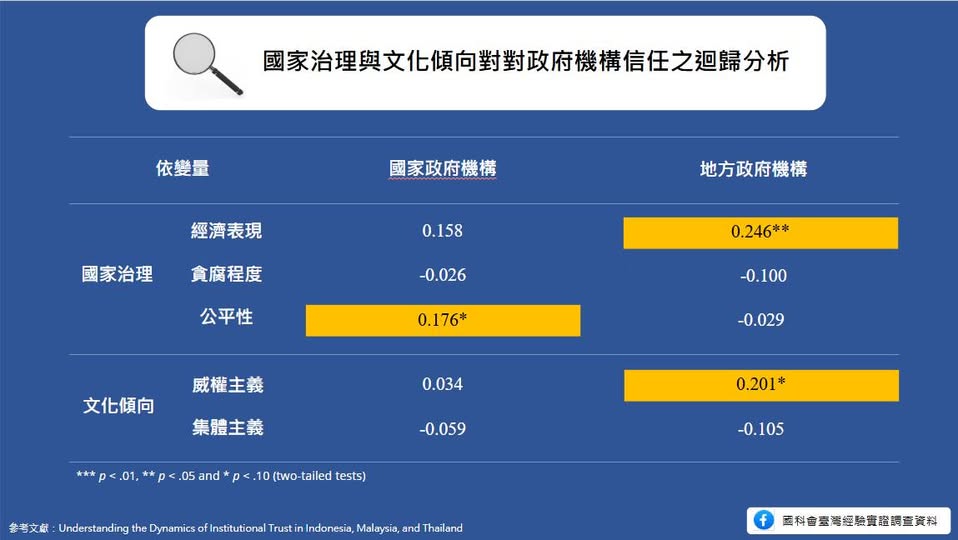Analyzing the factors that influence public trust in different levels of government institutions in Southeast Asian countries
Since Indonesia’s 80th Independence Day on the 17th, public sentiment toward President Prabowo’s administration—barely a year into its term—has shifted from high expectations to deep disappointment. In several cities, demonstrators raised pirate flags from the famous manga One Piece during protest marches. The immediate trigger was public anger over what they considered excessively high housing allowances for members of parliament, while corruption scandals repeatedly surfaced amid rising taxes, seizures, and restrictions on private property. At the same time, Indonesia’s high unemployment rate, unaffordable cost of living, and widening income gap among nonstandard workers were seen as the core reasons for discontent. On the evening of the 28th, a 21-year-old food delivery worker, Affan Kurniawan, was killed in clashes with riot police, and the protests escalated into nationwide riots.
Using data from the #Asian Democracy Dynamics Survey, Kim et al. analyzed the factors influencing public trust in different levels of government institutions in Southeast Asian countries. The study found that in Indonesia, when citizens perceived the national economy as performing well, they tended to have higher trust in local governments; similarly, greater obedience to authoritarianism correlated with higher trust. Perceptions of being treated fairly, meanwhile, had a positive effect on trust in the national government.

According to Al Jazeera, the glaring disparity between the generous allowances of government officials and the meager minimum wage—nearly ten times smaller—was especially provocative in the midst of Indonesia’s current economic struggles. Cutting back on the privileges of corrupt political elites has become one of the key demands of the protests.
Interestingly, Kim et al.’s study did not find a correlation between citizens’ perceptions of government corruption and their trust in institutions. Yet today’s protests are fueled by widespread accusations of embezzlement, bribery, and the misuse of social assistance funds. Furthermore, while the study showed that obedience to authority strongly explained trust in local government, the current uprising is marked by protesters waving pirate flags—a symbol interpreted as anti-colonial and defiant toward the regime.
In any case, the escalating unrest shows that Indonesia’s government is facing a severe crisis of trust. While the research results provide an entry point into understanding the roots of public dissatisfaction, they diverge from the realities on the ground today. The gap may be due to recent dramatic shifts in public perception, suggesting that other unexamined factors are influencing Indonesians’ trust in government.
If you’d like to explore this issue further, you can click the link to download the open-source #Asian Democracy Dynamics Survey data, freely available for anyone interested in Asia’s democratic development.
Original links:Understanding the Dynamics of Institutional Trust in Indonesia, Malaysia, and Thailand

